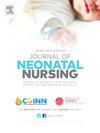在开放式新生儿重症监护中导航悖论:护士经验的定性研究
Q2 Nursing
引用次数: 0
摘要
目的探讨开放式新生儿重症监护病房护士的生活经历及可见环境对其专业实践的影响。方法采用焦点小组法进行定性描述性研究。25名护士参加了5个焦点小组。数据采用专题分析进行分析。结果出现了三个相互关联的悖论:职业知名度与个人曝光率;集体支持vs个人自主;职业界限和与家庭的情感联系。护士开发适应性,上下文敏感的策略,通过动态的专业推理导航这些悖论。结论本研究揭示了悖论导航是新生儿重症监护中一项基本但未被认识到的能力。不同于传统的方法寻求解决,有效的新生儿护士在动态紧张持有矛盾的需求。实践意义护理教育必须纳入当代新生儿护理所必需的悖论管理技能。医疗机构应该认识到,某些工作场所的紧张关系代表了需要导航而不是消除的固有特征,为支持护士的适应能力提供了新的途径。本文章由计算机程序翻译,如有差异,请以英文原文为准。
Navigating paradoxes in open-bay neonatal intensive care: A qualitative study of nurses' experiences
Purpose
To explore nurses' lived experiences of working in open-bay neonatal intensive care units and how the visible environment influences their professional practice.
Methods
A qualitative descriptive study using focus group methodology. Twenty-five nurses participated in five focus groups. Data were analyzed using thematic analysis.
Results
Three interconnected paradoxes emerged: professional visibility versus personal exposure; collective support versus individual autonomy; and professional boundaries versus emotional connection with families. Nurses developed adaptive, context-sensitive strategies to navigate these paradoxes through dynamic professional reasoning.
Conclusions
This study reveals paradox navigation as a fundamental yet unrecognized competency in neonatal intensive care nursing. Unlike traditional approaches seeking resolution, effective neonatal nurses hold contradictory demands in dynamic tension.
Practice implications
Nursing education must incorporate paradox management skills essential for contemporary neonatal care. Healthcare organizations should recognize that certain workplace tensions represent inherent features requiring navigation rather than elimination, offering new pathways for supporting nurse resilience.
求助全文
通过发布文献求助,成功后即可免费获取论文全文。
去求助
来源期刊

Journal of Neonatal Nursing
Nursing-Pediatrics
CiteScore
2.00
自引率
0.00%
发文量
143
期刊介绍:
Aims & Scope: This is the practical, bimonthly, research-based journal for all professionals concerned with the care of neonates and their families, both in hospital and the community. It aims to support the development of the essential practice, management, education and health promotion skills required by these professionals. The JNN will provide a forum for the exchange of ideas and information between the range of professionals working in this field; promote cooperation between these professionals; facilitate partnership care with families; provide information and informed opinion; promote innovation and change in the care of neonates and their families; and provide an education resource for this important rapidly developing field.
 求助内容:
求助内容: 应助结果提醒方式:
应助结果提醒方式:


